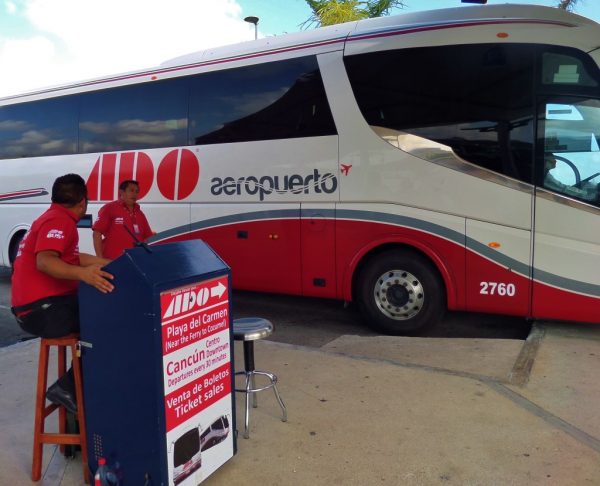The ADO bus line plans to reinforce security measures for the summer vacation season, installing cameras in its vehicles and terminals, while federal police are increasing patrols where passengers will gather.
Meanwhile, the leading bus line in southeast Mexico has added 18 new high-tech buses to its popular airport routes.
Heightened security has been implemented mainly by the federal police, the Secretariat of Communications and Transportation, as well as by state authorities of Veracruz, Tabasco, Oaxaca, Chiapas, Campeche and Quintana Roo.
Foreign and domestic visitors are expected to increase in numbers between 20 and 25 percent this summer. The peak season is considered July 9-Aug. 22, but already ADO — while pushing more discount deals — is reporting high ticket sales.
ADO reports its main destinations for this summer holiday are Playa del Carmen, Riviera Maya and Cancun. They also hope to increase their services to Mexico City, Villahermosa, Coatzacoalcos, Campeche and Tuxtla Gutierrez.
Earlier this year, ADO debuted 18 new high-tech buses to be employed on its airport routes at Cancun, Playa del Carmen, Tulum and Mérida.
Each bus is outfitted with 51 plug-in ports for connecting tablets and mobile phones. The buses also have built-in emission-control systems.
Julio García Flores, general manager of ADO Group, said the new 2016 model buses were created with long distance travelers in mind.
Aside from technology, the buses are also emission friendly with built-in systems that prevent the emission of exhaust pollutants into the air.
The addition of the 18 new buses required an investment of 93 million pesos ($4.9 million USD) and will be used to service the company’s Cancun, Playa del Carmen, Tulum and Merida airport routes. They will be added to the current line of 20 buses that transfer passengers to and from the Cancun International Airport.
ADO is short for Autobuses de Oriente, one of Mexico’s most prominent bus companies. It was founded in 1939 with six buses with one route that connected Mexico City, Puebla, Perote, Jalapa and Veracruz, during a time when the roads were dangerous and there were no terminals or repair shops. Each of the founding partners had to serve as driver, baggage handler, mechanic, administrator, etc., according to its Wiki page.
In the 1950s it added a route to Villahermosa, and today also serves Cancun, Oaxaca, Campeche, Cuautla, Huatulco, Mérida and Coatzacoalcos.



Comments are closed.